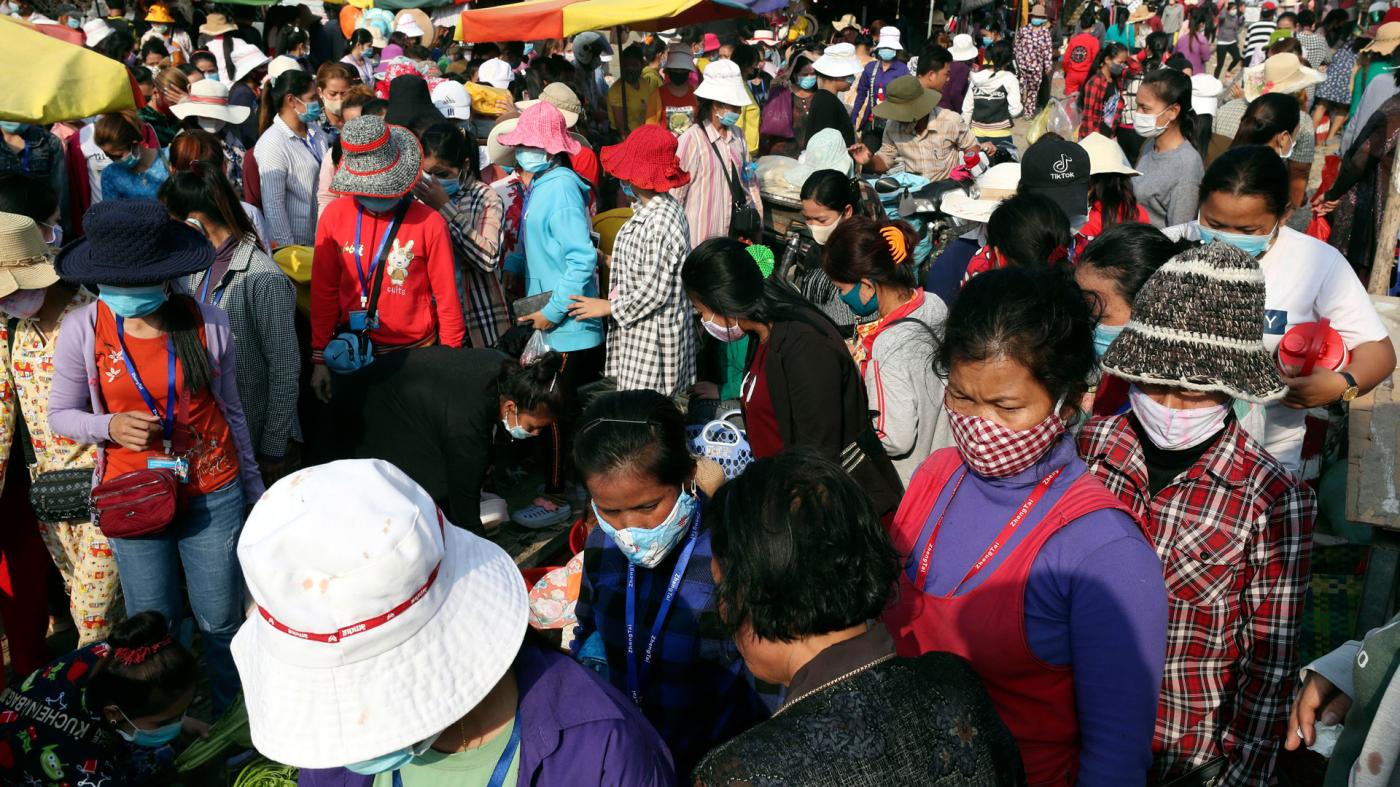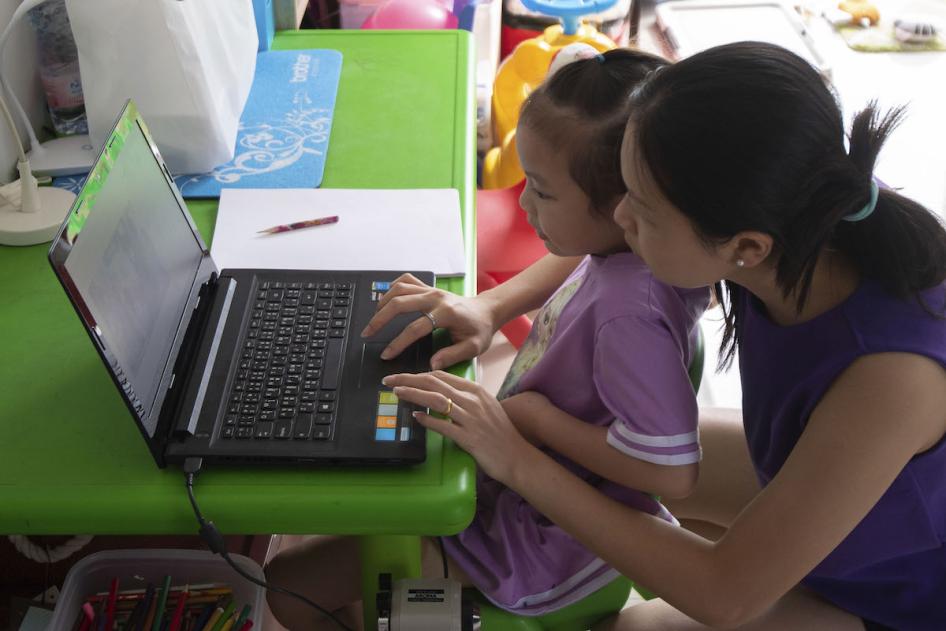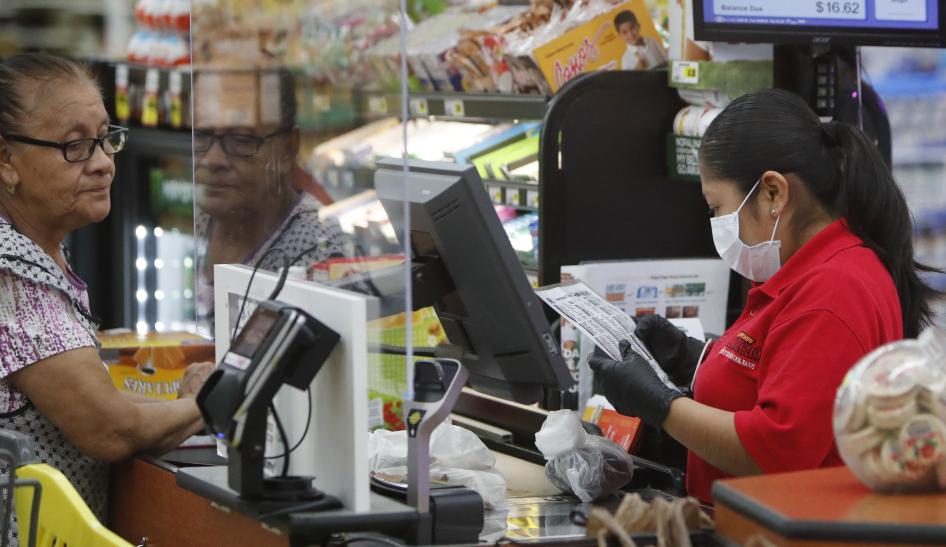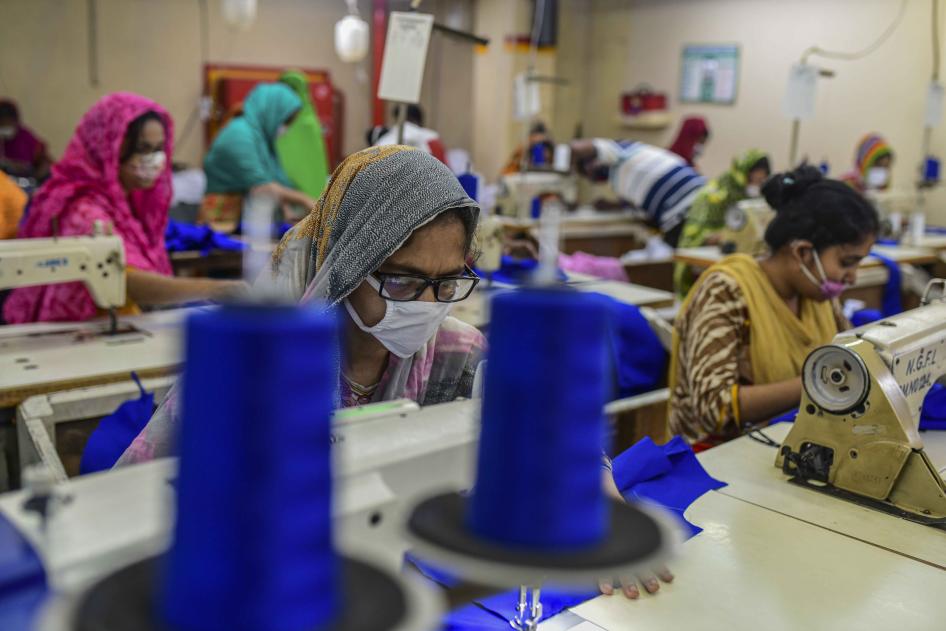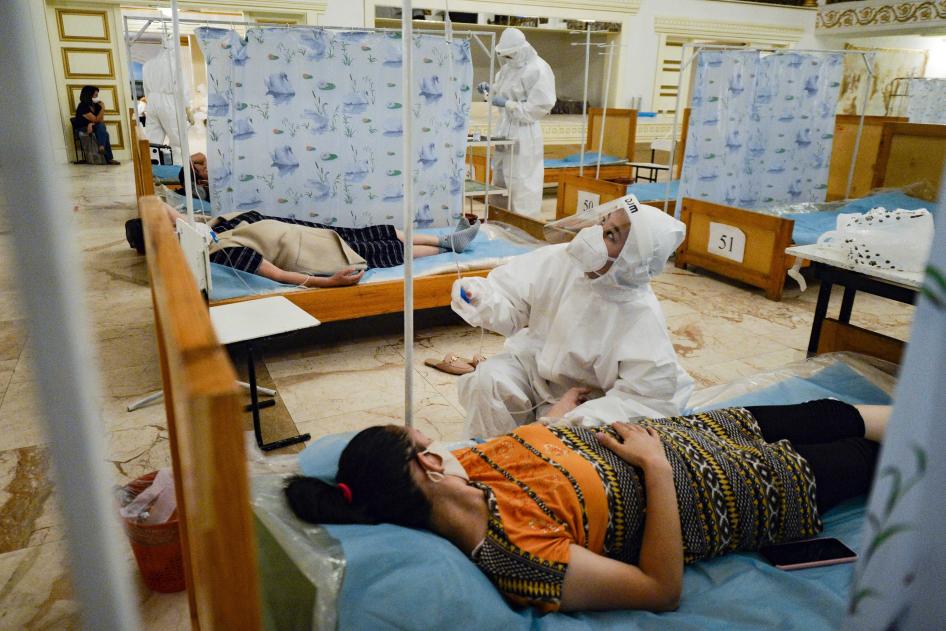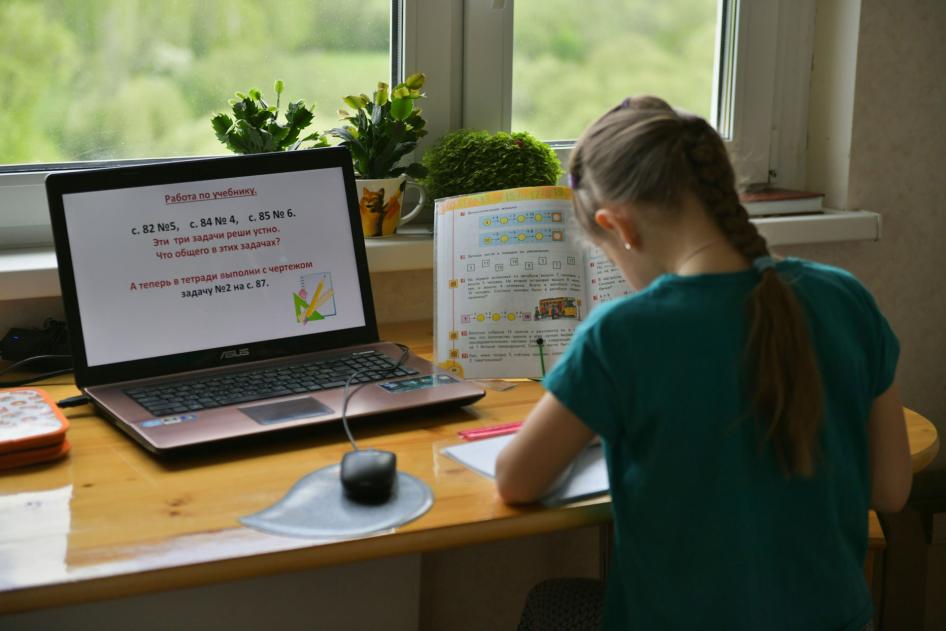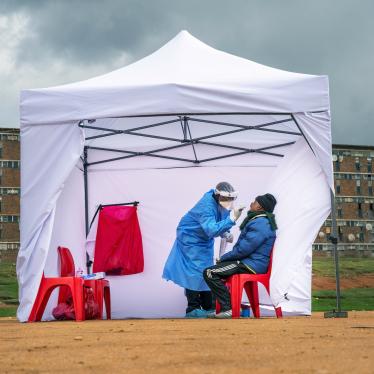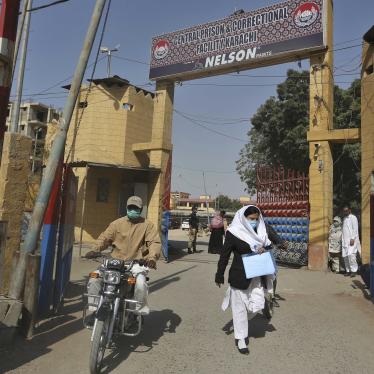How had Covid affected women and girls around the world?
B: This has been a devastating year for women’s rights. Some people find that counterintuitive because more men have died than women, but the impact on women’s lives has been much worse than on men’s. Roughly 1.4 billion kids were sent home from school and many more from childcare, and someone had to look after them and that was overwhelmingly women. Even before Covid, women did 2.5 times as much domestic care work as men. And those kids being out of school fell on women and it pushed millions of women out of the work force.
Women were disproportionally forced out of the labor market because they are paid less and are more likely than men to work in the informal sector where they had no job security. The past year has been an economic catastrophe for women. That’s why the UN thinks the pandemic will push 47 million more women into extreme poverty by September 2021.
We’ve also seen major increases in reported gender-based violence around the world, and women cut off from sexual and reproductive healthcare. Also, the school closures could cause greater harm to girls than boys, because being out of school puts girls at heightened risk of child marriage and other forms of gender-based violence, and girls may find it harder to study remotely because they are more likely to be doing caregiving and housework. All this means we will likely see fewer girls returning to school than boys and more long-term harm to girls’ educational achievement.
There’s a real concern that we’ve lost decades of progress.
K: Also, this hasn’t hit all women equally. Women of color, Indigenous women, ethnic minorities, transgender women, and women with disabilities or who are migrants or displaced from their homes have experienced the economic consequences and the risks of getting sick more because of intersecting discriminations they face.
Heather, you just said that Covid has pushed women’s rights back by decades. But we’re also in a better place than we were decades ago in terms of laws protecting women. What do we have now that we didn’t have then?
K: The global treaty that prevents discrimination against women, called the Convention on the Elimination of all forms of Discrimination Against Women, was new in the 80s. There are regional treaties related to women’s rights, the Maputo protocol in Africa, the Belém do Pará Convention in the Americas, and the Istanbul Convention in Europe, all of which address gender-based violence or women’s human rights. We have tools that press governments to pass legislation to protect women from discrimination in the workplace like the International Labour Organization’s new C190 Convention. Many countries have paid family leave, and there are increasing legal protections for women’s property rights during divorce and inheritance.
Also, we have more girls in school than ever. We’ve closed the gap between girls and boys attending primary school in most countries and are working on it for secondary school.
Today, people know that women’s equality drives economic security. All this means that our baseline has shifted. We’re going to come out of the pandemic fallout with this infrastructure to start from and that’s important.
B: Also, the pandemic has made gender inequity visible in ways it wasn’t – even to women. It’s galvanized people and made them angry and I think it’s mobilized women and feminists of all genders to demand that we rebuild a world that’s more equal for everyone.
There are more women leaders now than before. Does this help?
B: I’m cautious about the argument that women are better leaders. That’s not why women should be leaders. Women should be leaders because they have a right to be. Fifty percent of leaders should be women because we’re 50 percent of the population.
But I think the pandemic has been a fascinating, unintentional experiment perhaps providing us with data on whether male or female leadership is better in crisis. And there’s data showing that, if you measure success in handling the pandemic by saving lives, women leaders are doing a better job.
K: Representation matters. It doesn’t mean that having diverse leaders always creates the best outcome. But diversity is important in decision making, as people can make decisions based on their lived experience and on how things will play out in their communities.
[Laughing] Also, women wash their hands. There’s research on that. Women follow public health guidance better. And women wear masks and not just on their chins.
The year 2020 was the 25th anniversary of the Beijing conference, a seminal moment in women’s rights. What role does that global conference play in promoting woman’s rights?
K: Beijing 1995 was the fourth global conference on women convened by the United Nations. At it, governments adopted the most progressive global blueprint ever for advancing women’s rights. Hillary Clinton, at the time the US first lady, made a speech famously saying women’s rights are human rights. This platform created the framework for governments and the UN system to try and build societies that were more just and equal in terms of gender.
2020 was the 25th anniversary of Beijing, and there were plans for a global process, called Generation Equality Forum, to look at the successes and failures in implementing the platform, creating next steps. Because of the pandemic people couldn’t gather in person, but the process is moving ahead, and people are convening mostly online at the end of this month.
B: These battles for women’s rights are always fought locally and nationally. So discussions and efforts like Beijing Plus 25 are important, but impact is when they reach the local and national level. And what’s great about the women’s movement is that it’s increasingly connected, down to the grassroots level. The internet helps, for example creating solidary between people working on reproductive rights in Latin America and South Korea. This movement is on fire at the moment and Covid is part of the reason. It’s going to be an interesting year.
K: I feel like there was this sisterhood of feminists forged at Beijing, and it’s important for another generation of feminists to have that. But thankfully now you’ve got the internet for that so it can develop virtually.
B: Exactly. That space doesn’t have to be an international conference; it’s across the internet. And maybe by not being in one place, it’s more carbon neutral, more grassroots, more inclusive, and more sustainable.
You’ve worked in this space a long time. What about this year has surprised you the most?
B: I’m surprised that pregnant people have faced such a mess in term of their access to vaccines, with some countries banning them from being vaccinated or giving changing and contradictory advice. I didn’t see that coming. I also think we need to make sure efforts intending to “protect” pregnant people – like excluding them from clinical trials – don’t end up making them more at risk.
K: I’m not that surprised by it, but agree with you on what needs to happen now.
Argentina decriminalizing abortion is a big deal. Latin America has many of the world’s most restrictive abortion laws, so seeing a women’s movement succeed there is huge.
B: Kamala Harris [as US vice president] surprised me.
K: I’ve been surprised at how astonished world leaders in politics and economics and public health have been about the pandemic’s impact on women. It just shows how unpaid care work has been so undervalued and so invisible.
B: I agree with that. All the way from the macroeconomic level to the family level, the capacity of people who don’t do much care work – often men – to deny that it exists is even more powerful than we thought.
K: Another thing. I’ve been surprised at how many governments have failed to invest in children and education, to keep people healthy and also keep kids safe and learning.
B: Very true. Where I live, schools shut down in March, reopened for three weeks in October, and then reopened again a few weeks ago. Meanwhile the restaurants and shopping malls never shut, the mosques never shut – schools are the only thing that have been shut. In a lot of countries that shut schools first, there has not been enough urgency or rational thought given to how schools can be kept safely operating for children and staff. That’s under-valuing education in my opinion and also undervaluing women’s work and the way that having out-of-school children is inevitably going to completely crush a lot of women’s ability to do paid work.
Many of the issues we’re seeing holding women back existed before Covid. What can we do to address them and build back a society that supports women?
B: We have to fix the fact that parts of the economy run on the low- or unpaid labor of people who are caring for children, sick people, and older relatives. And that the people doing this low or unpaid labor are almost always women. Globally, we have to have a way that that this labor is shared more equally and paid for.
Childcare shouldn’t be costing more than some people earn at low-paying jobs each month, making it impossible to go to work. People who need support should have access to that care, and around the globe, we have to pay people who deliver care living wages and respect and appreciate them.
K: We also have to figure out how to bridge the gender digital divide between women’s and men’s access to the internet, which is growing. It’s going to increasingly crush women, as well as girls trying to study during the pandemic.
B. You can see this digital divide if you look at smart phone ownership. When a family has access to the internet, but has to share devices among family members, as is often the case in low and middle income countries, you’ll often see the devices are dominated by men and boys, not women and girls.
As more people continue to work from home post-pandemic, this divide will matter more than ever. So many people already have to go online to apply for jobs, pay rent and utility bills, access social protection measures, get plane tickets, and to sign up to get a Covid-19 vaccine. The pandemic has accelerated the shift of everything to online.
This also relates to the 47 million additional women who may fall into extreme poverty because of the pandemic. They may not be able to purchase a smart phone or pay for data.
K: It’s going to be hard to get women back into work after this. And because there are fewer jobs and more women who have lost work, the people in charge will have more power. When women are desperate for paid work, and there are few jobs, that situation can drive down wages and enable sexual harassment and sexual exploitation – unless governments and companies ensure it doesn’t.
B: So the question is, how do we do this? How do we dig our way out of this pandemic and insist on this “build back better” idea? That’s why I’ve been thinking so much about how this year has mobilized people and created new feminists – not all of them women. Governments are going to be creating recovery plans, and we have to be in the room or kicking the door down while they do this, in every village and town and capital, and say, look what you let happen to us, we’re not going to do this again.
Are any countries doing it right?
B: We haven’t yet seen governments formally launching recovery plans, so I hope this means we’re a bit ahead of the curve. But I will be watching closely to see if good models come out of countries led by women that managed well during the pandemic, like New Zealand, Taiwan, Germany, and several Nordic countries. I’m hoping that some of those leaders are bringing that same lens of gender-sensitivity into the next stage of things.
*This interview has been edited and condensed.
